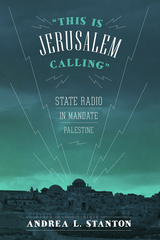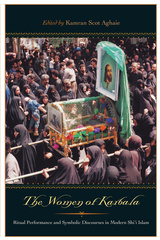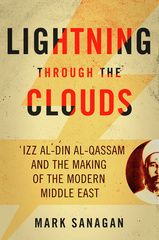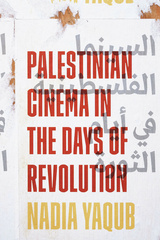Palestinian Rituals of Identity
The Prophet Moses Festival in Jerusalem, 1850-1948
Members of Palestine’s Muslim community have long honored al-Nabi Musa, or the Prophet Moses. Since the thirteenth century, they have celebrated at a shrine near Jericho believed to be the location of Moses’s tomb; in the mid-nineteenth century, they organized a civic festival in Jerusalem to honor this prophet. Considered one of the most important occasions for Muslim pilgrims in Palestine, the Prophet Moses festival yearly attracted thousands of people who assembled to pray, conduct mystical forms of worship, and hold folk celebrations.
Palestinian Rituals of Identity takes an innovative approach to the study of Palestine’s modern history by focusing on the Prophet Moses festival from the late Ottoman period through the era of British rule. Halabi explores how the festival served as an arena of competing discourses, with various social groups attempting to control its symbols. Tackling questions about modernity, colonialism, gender relations, and identity, Halabi recounts how peasants, Bedouins, rural women, and Sufis sought to influence the festival even as Ottoman authorities, British colonists, Muslim clerics, and Palestinian national leaders did the same. Drawing on extensive research in Arabic newspapers and Islamic and colonial archives, Halabi reveals how the festival has encapsulated Palestinians’ responses to modernity, colonialism, and the nation’s growing national identity.
Taken in its entirety, Halabi’s book artfully illuminates these tensions between family, village, town, region, and nation that have cut through the Nabi Musa celebrations since its inception. He has provided us with a valuable contribution to our understanding of modern Palestinian history, reminding us of the rich possibilities religious practice holds for the study of social and political change . . . Thanks to Halabi’s richly textured and thoroughly researched book, we can now incorporate these struggles into our own summations of Palestine’s modern story.
A meticulous and comprehensive study...an essential read.
Awad Halabi sheds light on how Palestinian religious ceremonies changed during the late Ottoman period and the Mandate, when a tradition of religious visitation turned into a nationalist event, and engages in an important debate about the divergence of popular religious practices from (and their confluence with) 'official' urban religiosity. Palestinian Rituals of Identity is a rigorous and conceptually well-grounded study of religion and identity in the Middle East.
Palestinian Rituals of Identity is a wonderful, original study, the product of thorough, patient, and careful research. With nuanced arguments and rich, complex analysis, Awad Halabi convincingly illustrates how the Nabi Musa festival became a contested terrain of meanings, identities, and loyalties. The result is a kaleidoscopic and dynamic description of the struggles of interests and shifting meanings of a major tradition, making this book an invaluable contribution to our understanding of how a public ritual shaped various dimensions of identity in Palestine.
Awad Halabi is an associate professor of history and religion at Wright State University, with a PhD in Near and Middle Eastern civilizations from the University of Toronto.
- Note on Translation
- Acknowledgments
- Introduction
- Chapter 1. The Traditional Ziyara
- Chapter 2. The Official Ceremonies in Fin-de-Siècle Jerusalem, 1850–1917
- Chapter 3. British Colonialism Attends the Festival
- Chapter 4. Arab Elite Discourses at the Festival
- Chapter 5. Nationalist Youth Activity at the Festival to 1937
- Chapter 6. Nonnational Inflections: The Participation of Non-Elite Groups
- Chapter 7. The Festival’s Denouement, 1938–1948
- Conclusion: The Nabi Musa Festival after 1948
- Notes
- Bibliography
- Index








